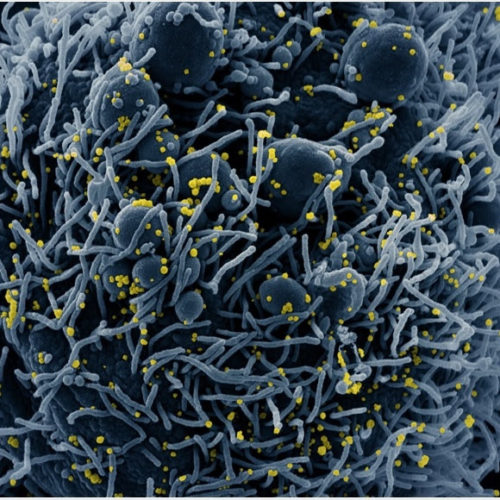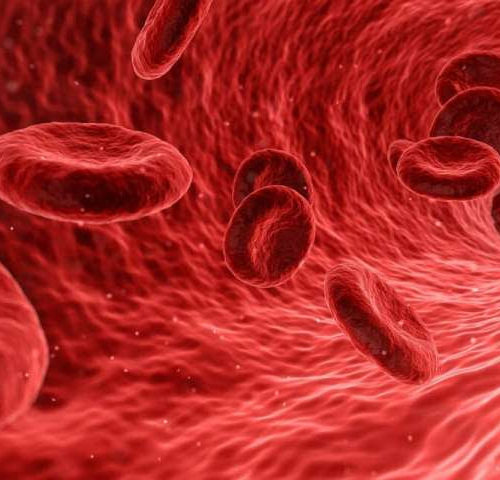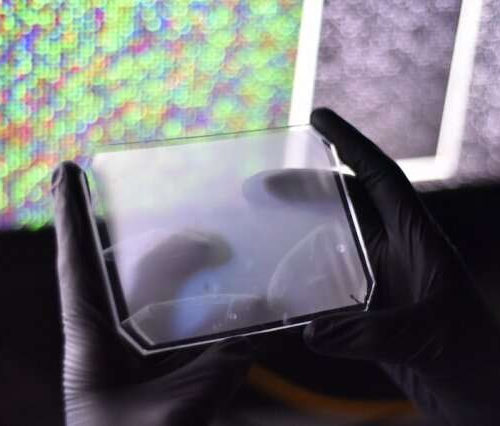By Nick Lavars Inflammation is a major focus of much medical research, with its links to arthritis, liver disease, cancers and many more illnesses. A new study carried out at Australia’s Peter Mac Cancer Centre has provided a possible new pathway forward, revealing that drugs under development to treat cancer could be used to temper...
New approach for easier detection of SARS-CoV-2 via swabs and saliva
By Dr. Tomislav Meštrović, MD, Ph.D A recent Israeli study points toward Reverse Transcription Loop-Mediated Isothermal Amplification (RT-LAMP) as a potentially effective tool for acute respiratory syndrome coronavirus 2 (SARS-CoV-2) on-the-spot detection by using swabs or saliva – addressing the community need for simple surveillance. The research titled ‘SARS-CoV-2 On-the-Spot Virus Detection Directly From Patients’...
Link identified between dietary selenium and outcome of COVID-19 disease
by University of Surrey Publishing their findings in the American Journal of Clinical Nutrition, researchers using data (up to 18 February), investigated possible links between selenium levels in the body and cure or death rates of those with the COVID-19 virus in China. Selenium is an essential trace element obtained from the diet (i.e. fish,...
APOE4 triggers early breakdowns in the blood-brain barrier
by University of Southern California New USC research reveals how APOE4, a genetic culprit for Alzheimer’s disease, triggers leaks in the brain’s plumbing system, allowing toxic substances to seep into the brain areas responsible for memory encoding and other cognitive functions. The damage is linked to future problems in learning and memory, even when the...
New Scottish drug shows promise in battle against COVID-19
by University of St Andrews A new anti-viral drug developed by Pneumagen, a University of St Andrews spin out company, has had positive results in laboratory tests against COVID-19. Pneumagen Ltd, a company focused on treating infectious disease and developing oncology treatments by targeting the human glycome, today (28 April 2020) announced results from three...
Low vitamin D may reduce survival for some with multiple myeloma
Vitamin D deficiency is associated with reduced overall survival for patients with multiple myeloma (MM), with a differential effect across race, according to a study published online April 21 in Blood Advances. Sarvari V. Yellapragada, M.D., from Michael E. DeBakey VA Medical Center in Houston, and colleagues examined the differential impact of vitamin D deficiency...
COVID-19 Vaccine: IntelliStem Technologies Announces Successful Development of Peptide-Based Vaccine Against COVID-19
TORONTO, ON – April 6th, 2020—INTELLiSTEM Technologies Inc, a biotechnology company pioneering cellular vaccines and peptide therapeutics, announced the successful development of a peptide-based vaccine (IPT-001) intended for human use against COVID-19. IPT-001 is a peptide-based vaccine developed using the novel coronavirus COVID-19. It was engineered using INTELLiPEPTIDOME™ Platform to target both the Spike (S)...
FDA Approves Phase II Trial of Hope Biosciences’ MSCs Against COVID-19
Autologous Mesenchymal Stem Cells to Provide Immune Support Against COVID-19 HOUSTON, April 6, 2020 — Hope Biosciences, a clinical stage biotechnology company focused on developing cell-based therapeutics for acute and chronic disease, today announced that FDA has approved a Phase II clinical trial evaluating efficacy and safety of Hope Biosciences’ autologous, adipose-derived mesenchymal stem cells...
Researchers uncover genetic cause behind glaucoma
by Queen Mary, University of London Acute angle closure glaucoma of the right eye (intraocular pressure was 42 in the right eye). Credit: James Heilman, MD/Wikipedia New research has identified a genetic mutation linked to a type of glaucoma, known as primary angle-closure glaucoma (PACG), which could open up new avenues for the early detection...
CRISPR-based diagnostic chips perform thousands of tests simultaneously to detect viruses
by Broad Institute of MIT and Harvard Researchers have developed a new technology that flexibly scales up CRISPR-based molecular diagnostics, using microfluidics chips that can run thousands of tests simultaneously. A single chip’s capacity ranges from detecting a single type of virus in more than 1,000 samples at a time to searching a small number...







